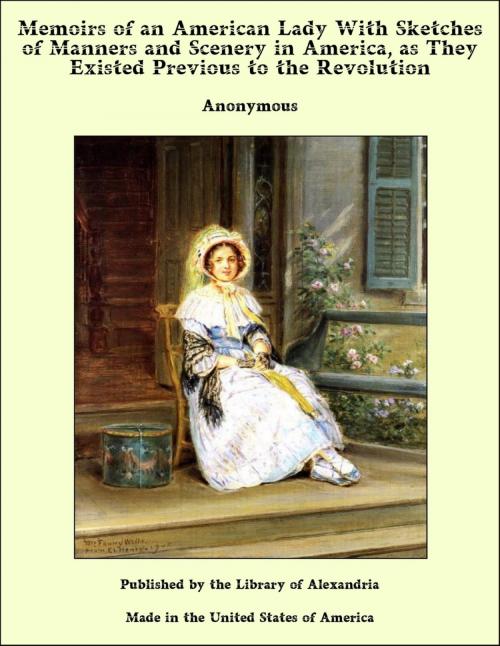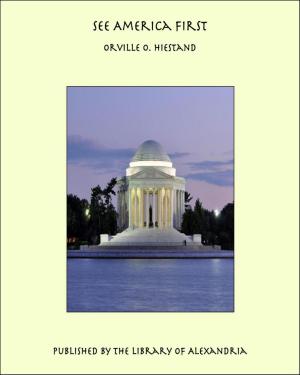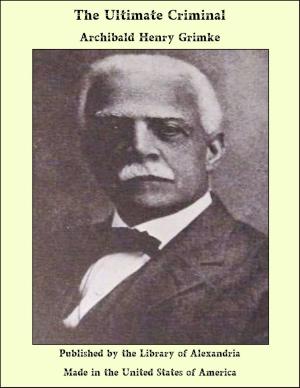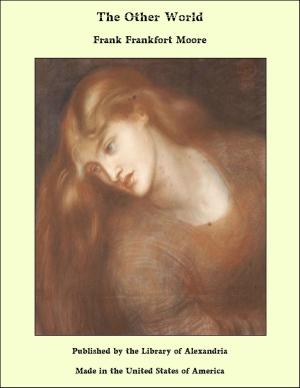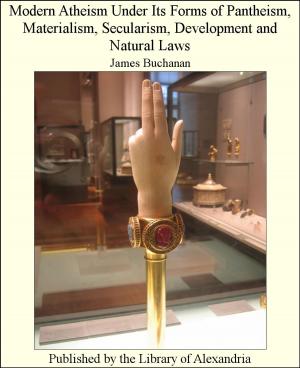Memoirs of an American Lady With Sketches of Manners and Scenery in America, as They Existed Previous to the Revolution
Nonfiction, Religion & Spirituality, New Age, History, Fiction & Literature| Author: | Anonymous | ISBN: | 9781465625991 |
| Publisher: | Library of Alexandria | Publication: | March 8, 2015 |
| Imprint: | Language: | English |
| Author: | Anonymous |
| ISBN: | 9781465625991 |
| Publisher: | Library of Alexandria |
| Publication: | March 8, 2015 |
| Imprint: | |
| Language: | English |
It is well known that the province of New-York, anciently called Manahattos by the Indians, was originally settled by a Dutch colony, which came from Holland, I think, in the time of Charles the Second. Finding the country to their liking, they were followed by others more wealthy and better informed. Some of the early emigrants also appear to have been people respectable both from their family and character. Of these the principal were the Cuylers, the Schuylers, the Rensselaers, the Delanceys, the Cortlandts, the Tenbroeks, and the Beekmans, who have all of them been since distinguished in the late civil wars, either as persecuted loyalists or triumphant patriots. I do not precisely recollect the motives assigned for the voluntary exile of persons who were evidently in circumstances that might admit of their living in comfort at home, but am apt to think that the early settlers were those who adhered to the interest of the Stadtholder’s family, a party which, during the minority of King William, was almost persecuted by the high republicans. Those who came over at a later period probably belong to the party which opposed the Stadtholder, and which was then in its turn depressed. These persons afterwards distinguished themselves by an aversion, almost amounting to antipathy, to the British army, and indeed to all the British colonists. Their notions were mean and contracted; their manners blunt and austere; and their habits sordid and parsimonious. As the settlement began to extend they retired, and formed new establishments, afterwards called Fishkill, Esopus, &c. To the Schuylers, Cuylers, Delanceys, Cortlandts, and a few others, this description did by no means apply. They carried about them the tokens of former affluence and respectability, such as family plate, portraits of their ancestors executed in a superior style, and great numbers of original paintings, some of which were much admired by acknowledged judges. Of these the subjects were generally taken from sacred history. I do not recollect the exact time, but think it was during the last years of Charles the Second, that a settlement we then possessed at Surinam was exchanged for the extensive (indeed at that time boundless) province of Manahattos, which, in compliment to the then heir apparent, was called New-York. Of the part of that country then explored, the most fertile and beautiful was situated far inland, on the banks of the Hudson River. This copious and majestic stream is navigable one hundred and seventy miles from its mouth for vessels of sixty or seventy tons burthen. Near the head of it, as a kind of barrier against the natives, and a central resort for traders, the foundation was laid of a town called Oranienburgh, and afterwards by the British, Albany. After the necessary precaution of erecting a small stockaded fort for security, a church was built in the centre of the intended town, which served in different respects as a kind of landmark. A gentleman of the name of Rensselaer was considered as in a manner lord paramount of this city. A pre-eminence which his successor still enjoys, both with regard to the town and the lands adjacent. The original proprietor having obtained from the high and mighty states a grant of lands, which, beginning at the church, extended twelve miles in every direction, forming a manor twenty-four Dutch miles in length, the same in breadth, including lands not only of the best quality of any in the province, but the most happily situated both for the purposes of commerce and agriculture. This great proprietor was looked up to as much as republicans in a new country could be supposed to look up to any one. He was called the Patroon, a designation tantamount to lord of the manor. Yet, in the distribution of these lands, the sturdy Belgian spirit of independence set limits to the power and profits of this lord of the forests, as he might then be called.
It is well known that the province of New-York, anciently called Manahattos by the Indians, was originally settled by a Dutch colony, which came from Holland, I think, in the time of Charles the Second. Finding the country to their liking, they were followed by others more wealthy and better informed. Some of the early emigrants also appear to have been people respectable both from their family and character. Of these the principal were the Cuylers, the Schuylers, the Rensselaers, the Delanceys, the Cortlandts, the Tenbroeks, and the Beekmans, who have all of them been since distinguished in the late civil wars, either as persecuted loyalists or triumphant patriots. I do not precisely recollect the motives assigned for the voluntary exile of persons who were evidently in circumstances that might admit of their living in comfort at home, but am apt to think that the early settlers were those who adhered to the interest of the Stadtholder’s family, a party which, during the minority of King William, was almost persecuted by the high republicans. Those who came over at a later period probably belong to the party which opposed the Stadtholder, and which was then in its turn depressed. These persons afterwards distinguished themselves by an aversion, almost amounting to antipathy, to the British army, and indeed to all the British colonists. Their notions were mean and contracted; their manners blunt and austere; and their habits sordid and parsimonious. As the settlement began to extend they retired, and formed new establishments, afterwards called Fishkill, Esopus, &c. To the Schuylers, Cuylers, Delanceys, Cortlandts, and a few others, this description did by no means apply. They carried about them the tokens of former affluence and respectability, such as family plate, portraits of their ancestors executed in a superior style, and great numbers of original paintings, some of which were much admired by acknowledged judges. Of these the subjects were generally taken from sacred history. I do not recollect the exact time, but think it was during the last years of Charles the Second, that a settlement we then possessed at Surinam was exchanged for the extensive (indeed at that time boundless) province of Manahattos, which, in compliment to the then heir apparent, was called New-York. Of the part of that country then explored, the most fertile and beautiful was situated far inland, on the banks of the Hudson River. This copious and majestic stream is navigable one hundred and seventy miles from its mouth for vessels of sixty or seventy tons burthen. Near the head of it, as a kind of barrier against the natives, and a central resort for traders, the foundation was laid of a town called Oranienburgh, and afterwards by the British, Albany. After the necessary precaution of erecting a small stockaded fort for security, a church was built in the centre of the intended town, which served in different respects as a kind of landmark. A gentleman of the name of Rensselaer was considered as in a manner lord paramount of this city. A pre-eminence which his successor still enjoys, both with regard to the town and the lands adjacent. The original proprietor having obtained from the high and mighty states a grant of lands, which, beginning at the church, extended twelve miles in every direction, forming a manor twenty-four Dutch miles in length, the same in breadth, including lands not only of the best quality of any in the province, but the most happily situated both for the purposes of commerce and agriculture. This great proprietor was looked up to as much as republicans in a new country could be supposed to look up to any one. He was called the Patroon, a designation tantamount to lord of the manor. Yet, in the distribution of these lands, the sturdy Belgian spirit of independence set limits to the power and profits of this lord of the forests, as he might then be called.
